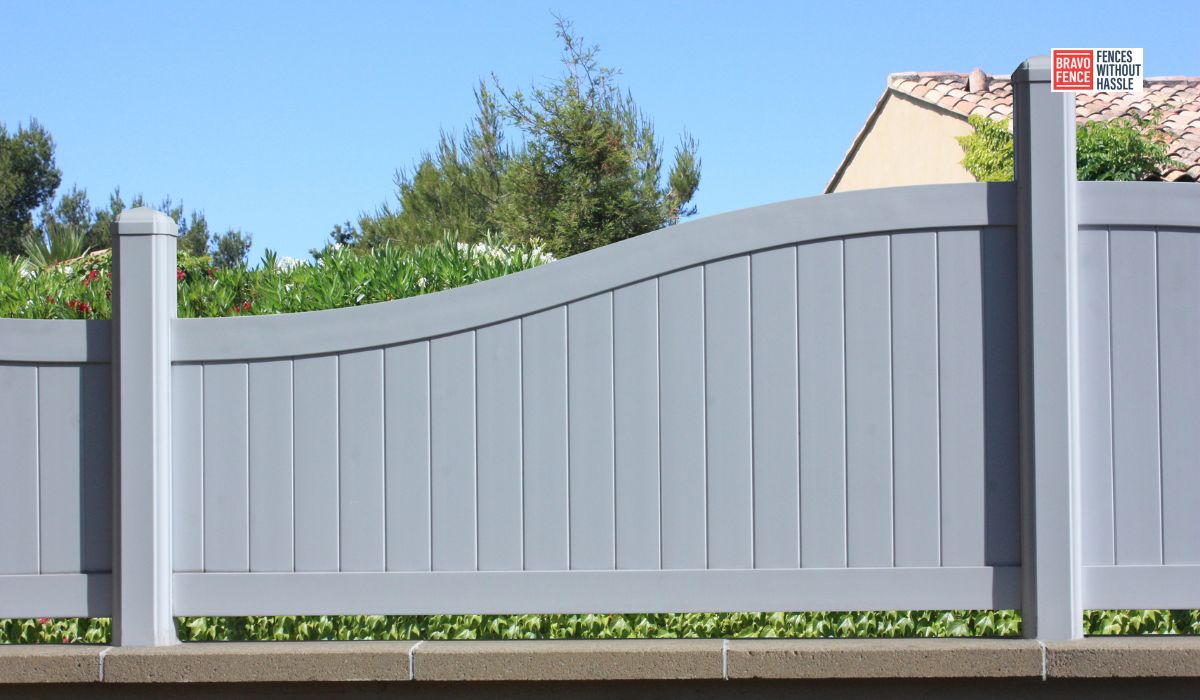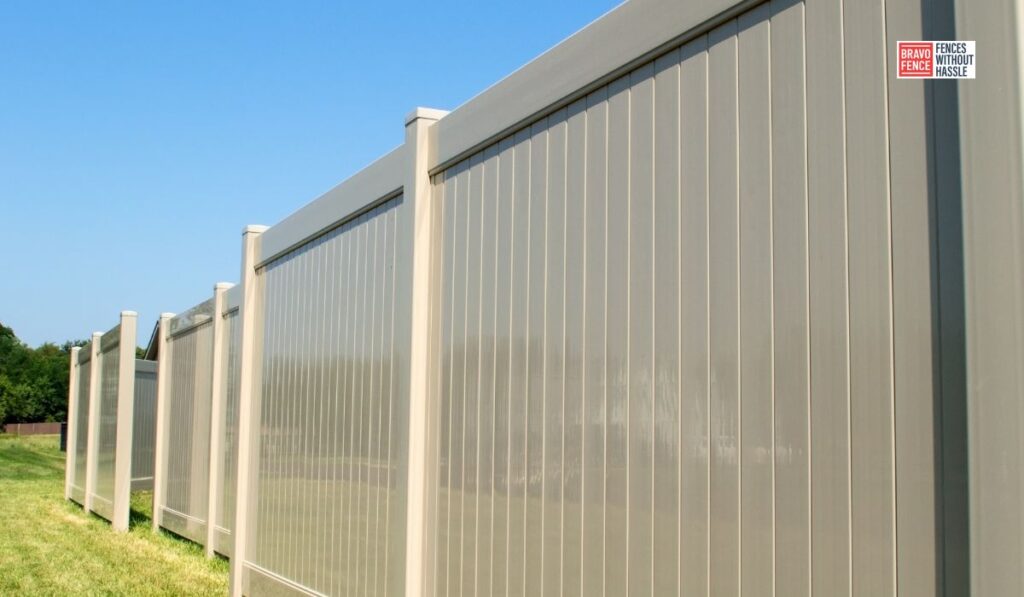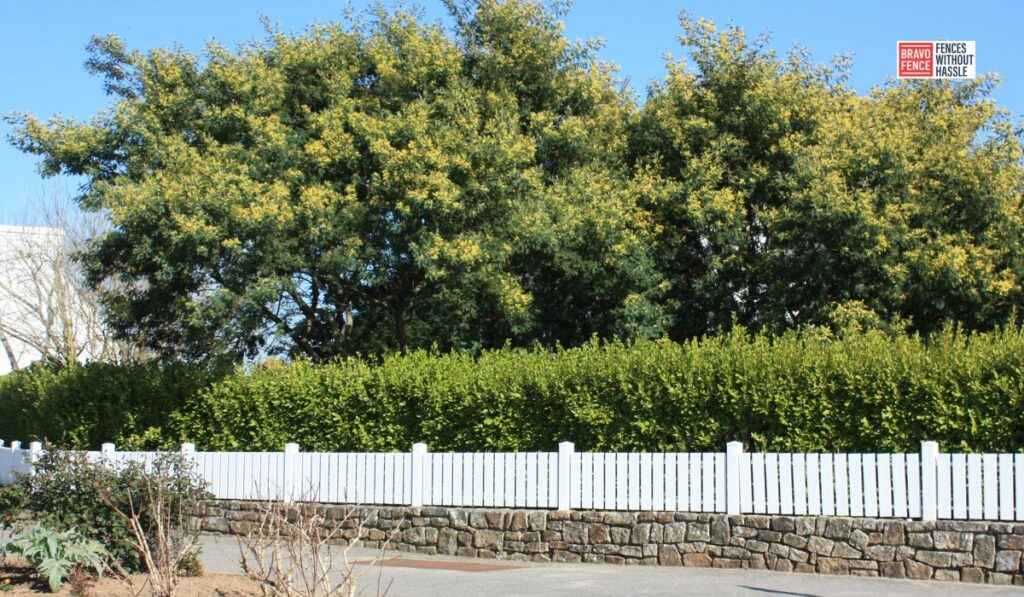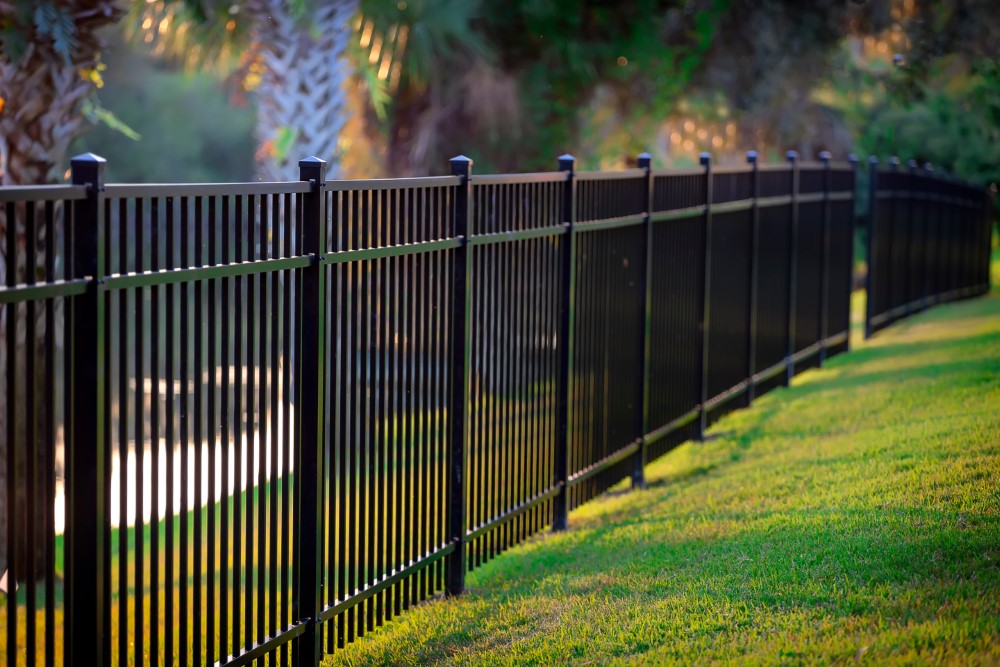
PVC Fence Repair: Common Issues and Solutions
PVC fences are a popular choice for homeowners due to their durability, low maintenance, and aesthetic appeal.
However, like any other type of fencing, PVC fences are not immune to damage and wear over time.
In this comprehensive guide, we will explore the common issues that arise with PVC fences and provide practical solutions for repairing them.
Understanding PVC Fencing
Before delving into the common issues with PVC fences, let’s first understand what PVC fencing is and its advantages.
What is PVC Fencing?
PVC, or polyvinyl chloride, fencing is a type of synthetic plastic fencing material known for its strength, durability, and resistance to rot, rust, and insect damage.
Advantages of PVC Fencing
- Durability: PVC fences are highly durable and can withstand harsh weather conditions, making them ideal for outdoor use.
- Low Maintenance: Unlike wood fences that require regular painting or staining, PVC fences require minimal maintenance and can be easily cleaned with soap and water.
- Versatility: PVC fencing comes in a variety of styles, colors, and textures, allowing homeowners to choose a design that complements their property.
Now that we understand PVC fencing let’s explore some common issues that may arise and how to address them.
Common Issues with PVC Fences
Cracks and Fractures
One of the most common issues with PVC fences is cracks and fractures, especially in areas prone to extreme temperatures or physical impact.

Causes:
- Temperature Fluctuations: PVC material can expand and contract with temperature changes, leading to cracks over time.
- Impact Damage: Accidental impacts from lawnmowers, falling branches, or other objects can fracture the PVC.
Solutions:
- Patch Repair: Small cracks can be repaired using PVC patch kits available at hardware stores. These kits typically include adhesive and patching material.
- Replacement: For more extensive fractures or sections of the fence that are extensively damaged, replacement may be necessary.
Contact a professional fence repair service for assistance.
Discoloration
Another common issue with PVC fences is discoloration, which can occur due to exposure to sunlight, mold, mildew, or certain chemicals.
Causes:
- Sun Exposure: Prolonged exposure to sunlight can cause fading and discoloration of PVC material over time.
- Mold and Mildew: Moisture buildup on the fence’s surface can promote the growth of mold and mildew, leading to discoloration.
- Chemical Exposure: Certain chemicals, such as pesticides or fertilizers, can react with the PVC material and cause discoloration.
Solutions:
- Regular Cleaning: To prevent mold and mildew buildup, regularly clean the surface of the fence with a mild detergent and water.
- UV Protection: To protect the PVC fence from sun damage and fading, apply a UV-resistant coating or paint.
- Professional Cleaning: For stubborn stains or discoloration, consider hiring a professional cleaning service that specializes in PVC fence restoration.
Sagging or Warping
Over time, PVC fences may sag or warp, especially if they are not correctly installed or supported.
Causes:
- Improper Installation: If the fence posts need to be set deep enough into the ground or if the fence panels need to be adequately secured, they can sag or warp.
- Heavy Winds: Strong winds can exert pressure on the fence panels, causing them to bend or warp over time.
Solutions:
- Reinforcement: Install additional support posts or braces along the length of the fence to provide added stability and prevent sagging.
- Adjustment: If the fence panels are already sagging or warping, carefully adjust them back into position and reinforce them with additional screws or fasteners.
- Professional Inspection: If the sagging or warping is severe, consider hiring a professional fence contractor to assess the situation and recommend appropriate repairs.
Preventative Maintenance Tips
In addition to addressing common issues with PVC fences, it’s essential to implement preventative maintenance measures to prolong the lifespan of your fence and minimize the risk of future problems.
Regular Inspections
Perform routine inspections of your PVC fence to identify any signs of damage, such as cracks, discoloration, or sagging.
By catching issues early, you can address them promptly and prevent them from worsening over time.
Cleaning Schedule
Establish a regular cleaning schedule to remove dirt, debris, and organic matter from the surface of your PVC fence.
Use a mild detergent and water solution to scrub away stains and prevent the buildup of mold and mildew.
Trim Vegetation
Keep vegetation trimmed and away from your PVC fence to prevent it from causing damage or promoting moisture buildup.
Overgrown bushes or vines can exert pressure on the fence panels and increase the risk of cracking or warping.
Secure Loose Components
Periodically check for loose screws, fasteners, or other components of your PVC fence and tighten them as needed.
Loose parts can compromise the stability of the wall and lead to further damage if addressed.
Winter Preparation
Take precautions to protect your PVC fence during the winter months, especially in regions with freezing temperatures.

Remove snow buildup from the top of the wall to prevent excess weight and potential damage from ice formation.
Professional Inspection
Consider scheduling an annual inspection with a professional fence contractor to assess the condition of your PVC fence and identify any potential issues.
A trained eye can catch problems that may not be immediately apparent to the homeowner.
Conclusion
In conclusion, maintaining a PVC fence requires a combination of proactive care and timely repairs.
By understanding the common issues that can arise, implementing preventative maintenance measures, and utilizing DIY repair techniques when needed, you can extend the lifespan of your PVC fence and preserve its beauty and functionality for years to come.
Remember to stay vigilant and address any issues promptly to prevent them from escalating into more significant problems.
With proper care and maintenance, your PVC fence will continue to enhance the aesthetic appeal and security of your property for years to come.
For professional assistance with PVC fence repairs or maintenance, consider contacting a reputable fencing company.
Visit us at Bravo Fence Company to get expert help and ensure your fence remains in top condition.
FAQs
What is PVC fencing?
PVC, or polyvinyl chloride, fencing is a type of synthetic fencing material made from plastic. It is known for its strength, durability, and resistance to rot, rust, and insect damage.
What are the advantages of PVC fencing?
- Durability: PVC fences are highly durable and can withstand harsh weather conditions.
- Low Maintenance: They require minimal maintenance and can be easily cleaned with soap and water.
- Versatility: PVC fencing comes in various styles, colors, and textures to suit different properties.
What are common issues with PVC fences?
- Cracks and Fractures
- Discoloration
- Sagging or Warping
What causes cracks and fractures in PVC fences?
- Temperature Fluctuations: Expansion and contraction due to temperature changes can cause cracks.
- Impact Damage: Accidental impacts from lawnmowers, falling branches, or other objects can cause fractures.
How can I repair cracks and fractures in a PVC fence?
- Patch Repair: Use PVC patch kits available at hardware stores for small cracks.
- Replacement: For more extensive fractures, replacing the damaged sections may be necessary. Contact a professional for help.
Why does my PVC fence discolor?
- Sun Exposure: Prolonged sunlight can fade and discolor PVC.
- Mold and Mildew: Moisture buildup can lead to mold and mildew growth.
- Chemical Exposure: Certain chemicals, such as pesticides or fertilizers, can react with the PVC material.
How can I prevent and treat discoloration?
- Regular Cleaning: Clean the fence regularly with mild detergent and water to prevent mold and mildew.
- UV Protection: Apply a UV-resistant coating or paint to protect against sun damage.
- Professional Cleaning: For stubborn stains, consider hiring a professional cleaning service.
Why is my PVC fence sagging or warping?
- Improper Installation: Sagging can occur if fence posts need to be set deep enough or panels need to be adequately secured.
- Heavy Winds: Strong winds can exert pressure on the fence panels, causing them to bend or warp.
How can I fix a sagging or warped PVC fence?
- Reinforcement: Install additional support posts or braces for added stability.
- Adjustment: Adjust sagging or warping panels and reinforce them with additional screws or fasteners.
- Professional Inspection: Hire a professional to assess and repair severe sagging or warping.
Tags: Complete Guide to Affordable Fence Repair, Complete Guide to Fence Board Repair, Everything You Need to Know About Fence Repair Tools, Everything You Need to Know About Repairing Wooden Fences, Explore Helpful Resources on Diy Fence Repair Tips, Explore Helpful Resources on Fence Post Replacement, Explore Helpful Resources on Fence Repair Services, Inspiration and Tips on Fence Maintenance Guide, Top Ideas and Insights About Common Fence Issues, Top Ideas and Insights About Fixing Broken Fences
